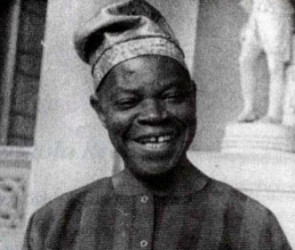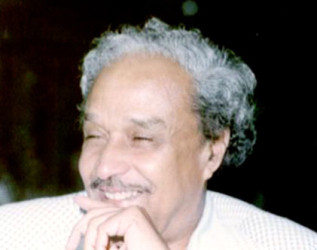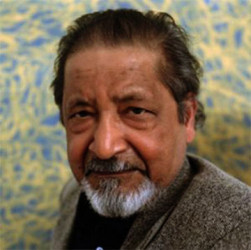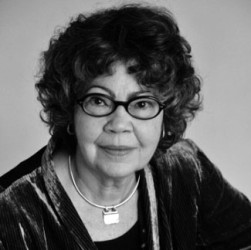The recent rediscovery of a collection of short stories by Commonwealth writers first published in 1971 has given rise to many pertinent thoughts about the literature and the significance of the selection highlighted at that time. What was and is the state of British and Commonwealth writing? Those pieces of short fiction represent a meaningful sample of that historical time period and allow a useful comparison with where it has gone since then.
Commonwealth Short Stories (1971) published by Edward Arnold in London is edited by Anna Rutherford, a prominent Australian and post-colonial critic, and Donald Hannah. The editors explain that “at the outset we were faced with two possibilities: either we could choose to include a single story from each country in the Commonwealth or we could be guided in our selection by more purely literary standards. Tempting in many ways as the first possibility was, we finally decided to follow the latter course”. The selections then demonstrate the nature and quality of the work, showing the reader some of what were the general form and prevailing preoccupations at the time.
 The featured writers include VS Naipaul, Wilson Harris, George Lamming, Andrew Salkey (West Indies), RK Narayan (India), Mordecai Richler (Canada), Frank Sargeson (New Zealand), Chinua Achebe, James Ngugi and Amos Tutuola (Africa). Although the editors did not select them as representatives of their geographical areas, they fairly well represented the regions, but perhaps more than that, they were among the best. Most of these were already giants in their territories in the 1970s, while some developed to be world leaders since then.
The featured writers include VS Naipaul, Wilson Harris, George Lamming, Andrew Salkey (West Indies), RK Narayan (India), Mordecai Richler (Canada), Frank Sargeson (New Zealand), Chinua Achebe, James Ngugi and Amos Tutuola (Africa). Although the editors did not select them as representatives of their geographical areas, they fairly well represented the regions, but perhaps more than that, they were among the best. Most of these were already giants in their territories in the 1970s, while some developed to be world leaders since then.
Interestingly, they are also included in another volume published around the same time, The Penguin Companion to Literature I: Britain and the Commonwealth (Penguin Books, London, 1971). The editor David Daiches explains that “this volume is concerned with writers (whatever their language) in the British Isles and with writers who use the English language in Commonwealth countries”. Here, too, Daiches comments, “there is the question of quality”. A great deal has developed in the literature following that period, and there have been significant advancements in short story writing.


Where the literature at the broadest level is concerned, there was still a body of writing known as Commonwealth Literature in 1970. During the previous 20 years or so outstanding writers had emerged to make an impact on world literature from countries that were former colonies in the British Empire. Foremost among these were the West Indies, India, Pakistan, the continent of Africa, Canada, Australia and New Zealand. During the process of decolonisation, “Empire” was dropped and the more politically correct term became British Commonwealth. Further on, even that gave way and the term “British” was eliminated altogether.
So Commonwealth Literature took its place alongside English, American, French, Spanish, Russian or German literature. It was not felt in the mainstream academy that individual territories had earned sufficient independence, volume, numbers and/or power to be called “literatures” in their own right. So that up to and right through the late sixties, encroaching over into 1970, for example, there was still yet no such thing as West Indian, African or Indian Literature. They were all subsumed under Commonwealth Literature, and in that way, earned their place on university curricula.
However, they imposed their presence and worth upon the world to become recognised in their own right, but soon after, something equally important happened. Several of the writers from these regions were ‘exiles’ in the UK, and began to affect what was happening to the literature there. They were from former colonies and reflected that political, social and cultural condition whether they were living in the UK or not. The development of the writing was keeping pace with and reflecting relationships between the countries, now independent, and their former ‘Mother Countries’ in Europe. Additionally, as a result of large-scale migration following such phenomena as the Windrush and other similar factors around in the 1950s, Europe began to become somewhat multi-cultural with growing ‘minority’ populations. There developed such social and cultural acts as ‘othering’ of minorities – minority groups becoming the ‘Other’.
The writers were responding to the social, political and cultural factors in many ways, including their uses of form and style. Since much of the work was published in the UK it had its effect on what was happening there and English literature itself saw transformation. But more pertinently, a body of literature developed out of Commonwealth literature which is now known as post-colonial literature. Many critics recognised it and named it – including Edward Said, Homi Babbha, Helen Tiffin, CLR James, Stuart Hall and even Anna Rutherford.
The various literatures had developed and earned their independence. Critic (and poet) Edward Baugh pointed out that “the colonial quality” in post-colonial Caribbean literature was so integral in the shaping and the background to the advancing literature that it “is not something to be outgrown”.


In 1971 when the Commonwealth Short Stories and the British and Commonwealth Literature were compiled, RK Narayan was the leading Indian writer of fiction. Since then there has been the powerful emergence of leading post-colonial Indian writers such as Vickram Seth and, most prominently, Salman Rushdie. Perhaps, too, at that time if one asked, as editors Rutherford and Hannah did ask, who are the leading short story writers in the Caribbean, the names of Naipaul, Harris and Salkey would have sprung to mind, but they are all primarily novelists. One of the big changes is that today, while Harris and Naipaul have shown themselves to be master craftsmen in the short stories that they have produced, many West Indian writers have been established as specialists in the writing of short fiction.
Few of the others included in the collection are solely short fiction peoducers. Frank Sargeson of New Zealand is one of them and he is also a foremost writer from that country. Mordecai Richler has carved out his prominent place in Canadian and world literature as a novelist, winning major prizes such as the Commonwealth Writers Prize.
It is not difficult to name a number of writers in different countries who are acknowledged as the best short story writers, even though some of them are also equally, leaders as novelists. There is O Henry, for instance, of the USA, and Guy de Maupassant of France who are legends in the form. There are other Americans, novelist Ernest Hemmingway being most prominent, as well as Mark Twain and Edgar Alan Poe. There are Anton Chekhov of Russia, DH Lawrence, James Joyce and perhaps Henry James of the British Isles.
Today, some of the most outstanding Caribbean writers emerged as foremost short story writers. These include Olive Senior, Lorna Goodison and Kwame Dawes, who also happen to be major poets; yet they have produced prominent works which are collections of short fiction and which have won major prizes, such as the Commonwealth, for Senior. Pauline Melville made her fame as a short story writer when she exploded upon the literary landscape with the prize-winning collection Shape Shifter, but she then went on to achieve her further acclaim with novels.
Most recently, Mark McWatt, a renowned poet, had an even more meteoric entrance into the realm with a short story volume called Suspended Sentences (Fictions of Atonement). In addition there have been numerous short story writers emerging as specialists in the shorter form, including Phillip Nanton who is now resident in Barbados. In Guyana short story specialists are among the leading talents, such as prize winners Ruel Johnson, Subraj Singh, Imam Khan and Reuben Latchmansingh. Cyril Dabydeen during his long career has worked in poetry, novels and short stories.
In spite of all those developments, there are pieces of excellence in the 1971 collection. Foremost among them is Harris’ ‘Kanaima’ in which he draws on the controversial figure of the kanaima in Guyanese Amerindian belief and the way this protean shape-shifter merges with the forest, with darkness and with the symbol, image, notion and presence of death among those for whom the hostile rainforest is home. Naipaul’s ‘Man-Man’ is by no way his best piece and is not even the most impressive in Miguel Street from which it is taken, but Naipaul is nevertheless the author of some of the most outstanding short stories in West Indian literature.
In other instances Rutherford and Hannah included excerpts from novels, as in the case of Amos Tutuola, so those might invite debate, given the nature of The Palm Wine Drinkard. ‘The Sacrificial Egg’ is brilliant, although it comes from a novelist. This collection from 1971 then, is worth its place as a significant publication of Commonwealth or post-colonial literature. It tells us a lot about the state of the art then, and is great stimulus for comparisons and considerations about the way the literature has developed.









